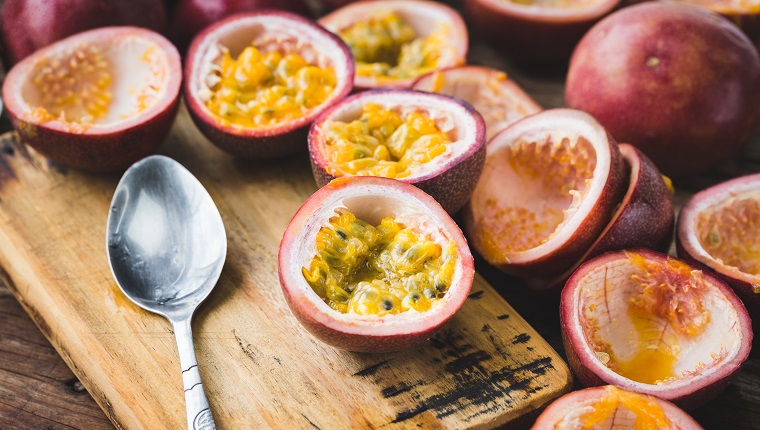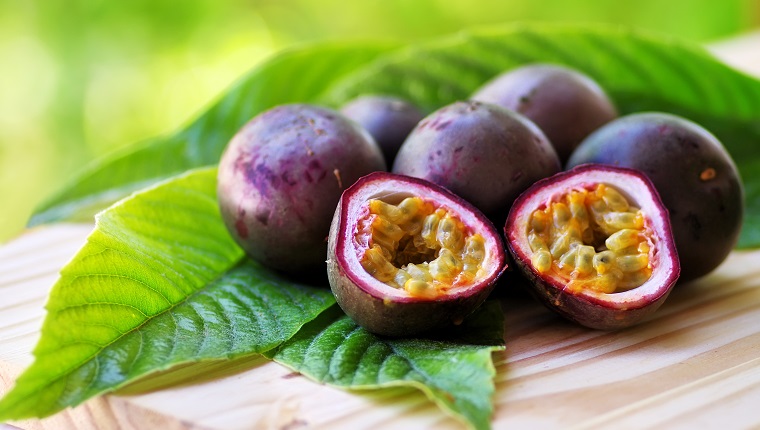Can dogs eat passion fruit? Maybe you enjoy this exotic and unique fruit and wish to share it with your dog, or maybe you have a tree in the backyard with fallen bounty your dog is curious about. But can dogs safely consume passion fruit?
The short answer is no; while the pulp of passion fruit is technically okay for dogs to eat, its seed content is too dense. And, unfortunately, these seeds do contain cyanide, much like apple seeds. Other exotic fruits, such as papaya, are much safer, exceptionally more nutritious, and far easier to prepare.
That being said, you can and should always get the information you trust from your veterinarian. In the meantime, here is what we’ve gathered on why passion fruit just isn’t worth introducing to your dog.
Why Is Passion Fruit Bad For Dogs?
Passion fruit certainly has nutritional benefits, especially for us humans. But the big problem with passion fruit is the seed content.
Unfortunately, the interior of passion fruit is kind of a pulp and seed pudding. There’s very little of the pulp that isn’t riddled with seeds. A dexterous human can remove the seeds, or spit them out, but this isn’t something we can expect of our dogs.
These seeds are an issue for a few reasons. Seeds, in general, are a choking hazard, for one. Secondly, in dense quantities, seeds can cause intestinal obstruction in dogs. And finally, passion fruit seeds contain cyanide, which is highly toxic to dogs.
With these factors, plus the inconvenience of trying to safely prepare passion fruit for dogs, the nutritional benefit just isn’t worth the risk.
What Should I Do If My Dog Eats Passion Fruit?

Cyanide poisoning is a serious matter for dogs, and negative effects take shape quickly.
If your dog has consumed a whole passion fruit or much of the interior with the seeds, seek immediate veterinary care. There is, of course, the chance that everything will be just fine, but if it isn’t, waiting to see if it is could cost you valuable time.
In general, you can avoid this headache by being proactive in keeping your dog away from unattended and accessible passion fruit. This is a sweet fruit, so your dog will be curious and interested.
If you have a tree in the backyard, take necessary precautions to keep them away from fallen fruit.
If after consulting your veterinarian, you do decide to feed your dog a bit of passion fruit pulp, be absolutely sure that it is seed-free, completely ripe, and without skin.
Our recommendation, though, is to seek more suitable fruits for your dog. It’s natural to want to introduce them to exotic fruits and new, exciting flavors, especially if they enjoy them with safer fruits. But sometimes, this just isn’t worth risking the health of your beloved companion.
Has your dog ever tried to eat some of your passion fruit? What safer fruits do you share with your dog? Let us know in the comments below.




